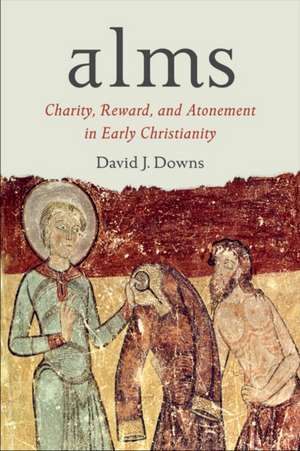Alms: Charity, Reward, and Atonement in Early Christianity
Autor David J. Downsen Limba Engleză Hardback – 14 apr 2016
Preț: 513.65 lei
Nou
Puncte Express: 770
Preț estimativ în valută:
98.29€ • 102.42$ • 81.38£
98.29€ • 102.42$ • 81.38£
Carte disponibilă
Livrare economică 13-27 martie
Preluare comenzi: 021 569.72.76
Specificații
ISBN-13: 9781602589971
ISBN-10: 1602589976
Pagini: 350
Dimensiuni: 152 x 228 x 30 mm
Greutate: 0.68 kg
Editura: Baylor University Press
Colecția Baylor University Press (US)
ISBN-10: 1602589976
Pagini: 350
Dimensiuni: 152 x 228 x 30 mm
Greutate: 0.68 kg
Editura: Baylor University Press
Colecția Baylor University Press (US)
Cuprins
IntroductionWhat Can Wash Away My Sin?1. Redeem Your Sins with Acts of Mercy2. Merciful Deeds Deliver from Death3. Desire Mercy, Not Sacrifice4. Give Alms with Respect to the Things Within5. Storing Up the Treasure for a Good Foundation6. Love Covers a Multitude of Sins7. Merciful Practice Is Good as Repentance for Sin8. By Alms and Faith Sins Are Purged AwayConclusion










